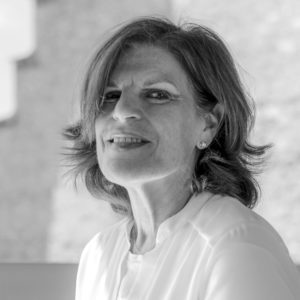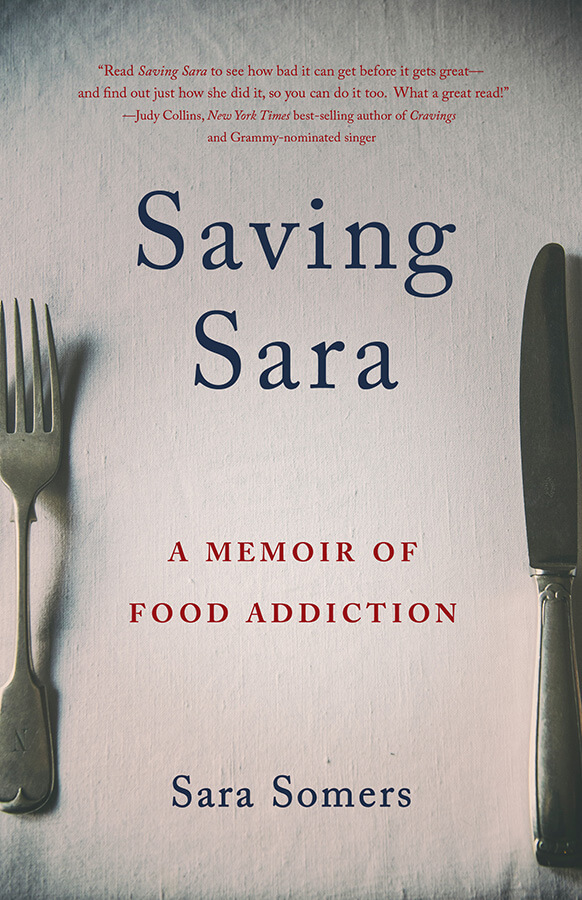- Calls to this hotline are currently being directed to Within Health, Fay or Eating Disorder Solutions
- Representatives are standing by 24/7 to help answer your questions
- All calls are confidential and HIPAA compliant
- There is no obligation or cost to call
- Eating Disorder Hope does not receive any commissions or fees dependent upon which provider you select
- Additional treatment providers are located on our directory or samhsa.gov
Author Sara Somers on Writing Her Story of Food Addiction and Healing
 In December of 2005, I walked into the rooms of Greysheeters Anonymous, and this time I stayed. I was fifty-eight years old. My life, up to that point, had been one of a food addict, abusing food and my body by bingeing uncontrollably, going on diets both sensible and crazy, having ‘who knows what’ shot into my butt, losing and gaining hundreds of pounds.
In December of 2005, I walked into the rooms of Greysheeters Anonymous, and this time I stayed. I was fifty-eight years old. My life, up to that point, had been one of a food addict, abusing food and my body by bingeing uncontrollably, going on diets both sensible and crazy, having ‘who knows what’ shot into my butt, losing and gaining hundreds of pounds.
I made obtaining sugar and grains the focal point of my life. Then I’d do an about-face by denying myself food altogether. I had stolen food from friends, from families that I babysat for, and from grocery stores – and I lied if I was caught.
In complete sincerity, I had made countless promises to myself in the morning, throwing out binge foods, covering them with coffee grounds. By mid-afternoon, I was diving into the garbage to retrieve and eat it.
I called myself names for being so weak. I felt deep shame. I thought I was the only one who did these things. There was little doubt in my mind that I was a down and dirty, compulsive bottom of the barrel eater.
But I didn’t have the words to say that. In my view, I was despicable, defective, and only when I lost weight, could I show my face to the world.
I knew about GreySheeters Anonymous, but I didn’t want to go to their meetings. I didn’t want to be the kind of food addict that needed GSA. I refused to accept that I was exactly the kind of food addict that needed their ‘no matter what’ structure. I had been in AA for years and knew that message of ‘you either are, or you aren’t’ worked for me.
In 2005, I was at the crossroads of desperation and hope. I shut my mouth and opened my ears. I learned there is no easy fix for someone who is a true food addict. I heard people describing the insane things they did in the pursuit of beauty and normalcy. I learned I was not alone. People said to me, “raise your hand and share whenever you can. Your story is your most valuable asset.”
After I moved to Paris, I started taking writing classes. I found myself remembering specific incidents of food abuse. I wrote vignettes. After three years, it occurred to me that I could write down my story.
I was told over and over that, as a person abstaining from sugar, grains, and refined carbs, my primary purpose is to stay abstinent and help the suffering compulsive eater who didn’t know there is a solution. I wrote it all down, and it became the book, Saving Sara.
Writing my story showed me in black and white that I had a progressive disease that could only end in insanity, death, or recovery. By the grace of a Higher Power, I chose recovery.
Do I have any insights about food addiction? What I know is that it is real, and it is deadly. It only gets worse as a person ages. It is a disease that tells me I don’t have a disease. It is a disease that tells me, “go ahead, have one bite, it’s okay.” It is a disease that tells me I don’t need the black and white structure even though I’ve seen it work in AA. I’ve learned to recognize the voice of the disease.
I wrote my story so that food addicts who identify with my journey might find hope. Addicts of my type do not want to be told what to do by anyone. Addicts of my type only listen if they know someone else has experienced the exact same thing. My hope is that food addicts will recognize themselves and say, “if she can do it, I can too.” That they will come to a GSA meeting with an open mind.
I hope that families, educators, and medical professionals read Saving Sara and rethink their attitudes about this disease. I have written my story in the hope that it will shine a little more light on the very serious problems of obesity and loneliness as a result of food addiction.
About the Author:
Sara Somers suffered from food addiction from age nine to age fifty-eight; she has been in food recovery since 2005. In a double life of sorts, Somers worked as a licensed psychotherapist in the San Francisco Bay Area for thirty-four years. After finding recovery, Somers moved to Paris, France, where she currently lives. She writes a blog called Out My Window: My Life in Paris. When she’s not writing, Somers volunteers at the American Library in Paris, enjoys the cinema, reads prolifically and follows her favorite baseball team, the Oakland Athletics. Most importantly, Somers devotes time each day to getting the word out about food addiction and helping other food addicts. “Saving Sara” is her first book. To learn more about Sara and her work, visit www.saving-sara.org.

Personal stories of food addiction in ‘Saving Sara’ help readers better understand addiction
“A riveting and deeply human memoir.”
– Anne Lamott, California Hall of Fame inductee, novelist, and nonfiction writer
PARIS – For nearly fifty years, Sara Somers suffered from untreated food addiction. In “Saving Sara” (She Writes Press, May 12, 2020) Somers’ intimate memoir, she offers readers an inside view of a food addict’s mind, showcasing her experiences with obsessive cravings, compulsivity, and powerlessness regarding food, with the hopes of educating her readers and promoting life-saving conversations between loved ones and those suffering with addiction.
“Saving Sara” chronicles Somers’s addiction from childhood to adulthood, beginning with abnormal eating as a nine-year-old. As her addiction progresses in young adulthood, she becomes isolated, masking her shame and self-hatred with drugs and alcohol. Time and again, she rationalizes why this time will be different, only to have her physical cravings lead to ever-worse binges, to see her promises of doing things differently next time broken, and to experience the amnesia that she –like every addict– experiences when her obsession sets in again.
Even after Somers is introduced to the solution that will eventually end up saving her, the strength of her addiction won’t allow her to accept her disease. Twenty-six more years pass until she finally finds her way back to that solution.
A raw account of Somers’ decades-long journey, “Saving Sara” underscores the challenges faced by food addicts of any age – and the hope that exists for them all.
“Read Saving Sara to see how bad [addiction] can get before it gets great – and find out just how she did it, so you can do it too. What a great read!”
– Judy Collins, New York Times bestselling author of Cravings
The opinions and views of our guest contributors are shared to provide a broad perspective on eating disorders. These are not necessarily the views of Eating Disorder Hope, but an effort to offer a discussion of various issues by different concerned individuals.
We at Eating Disorder Hope understand that eating disorders result from a combination of environmental and genetic factors. If you or a loved one are suffering from an eating disorder, please know that there is hope for you, and seek immediate professional help.
Published June 2, 2020, on EatingDisorderHope.com
Reviewed & Approved on June 2, 2020, by Jacquelyn Ekern MS, LPC

The EatingDisorderHope.com editorial team comprises experienced writers, editors, and medical reviewers specializing in eating disorders, treatment, and mental and behavioral health.

